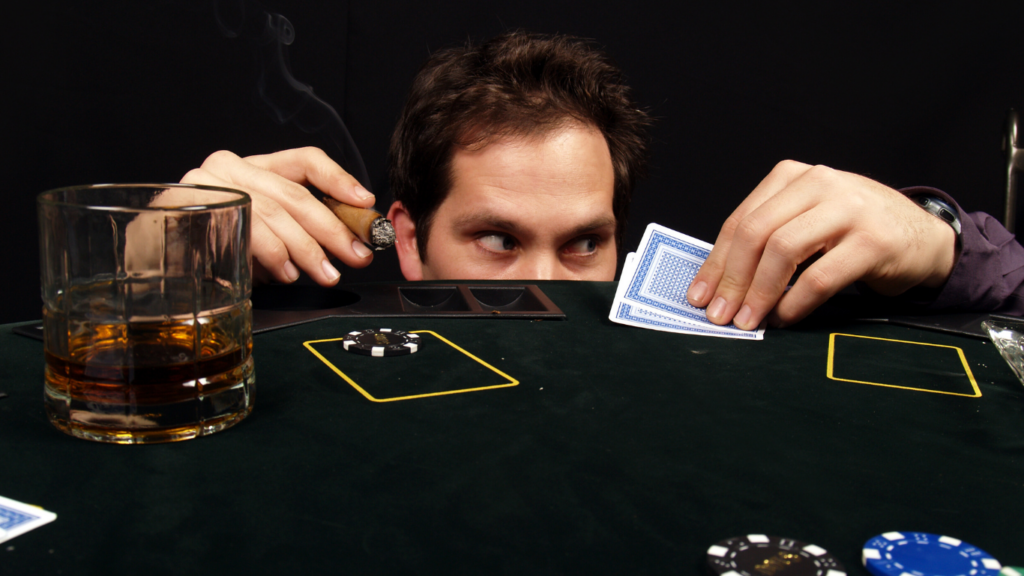Understanding Gambling: Chance Vs Skill
Gambling combines varying degrees of luck and skill depending on the game. To understand its dynamics, it’s important to dissect these two elements and their impact on outcomes.
The Role of Luck
Luck dominates in games that rely on random outcomes. Slot machines, roulette, and lotteries are examples where results come from chance alone. Players can’t alter the outcome, as these games are powered by random number generators or fixed probabilities. Even with strategic betting, the house edge ensures that chance remains the primary factor in long-term results.
Games That Involve Skill
- Skill-based games introduce an element of control for players with expertise.
- Poker, blackjack, and sports betting reward players who understand the rules, probabilities, and strategies.
- In poker, reading opponents and calculating odds can improve winning chances.
- In blackjack, card counting and adherence to optimal strategies reduce the house advantage.
- Sports betting requires analyzing teams, players, and match conditions to make informed wagers.
- Success remains influenced by chance, but skill can tilt odds slightly in the player’s favor.
Exploring Games of Skill in Gambling
Certain gambling activities require more than luck. They involve strategizing and skill, though chance remains a significant factor.
Poker: The Balance of Strategy and Chance
Poker combines psychology, math, and strategy. Players can influence outcomes by making calculated decisions based on:
- probabilities
- opponent behaviors
- hand evaluations
For example, a skilled player might use bluffing or position awareness to outplay opponents, especially in no-limit Texas Hold’em. Despite these elements, random card distribution ensures chance still impacts results.
Sports Betting: Knowledge and Analysis

Success in sports betting demands research and analytical skills. Assessing team performance, player statistics, and recent form enables bettors to make educated predictions. For instance, analyzing a quarterback’s completion rate or a team’s defensive record can guide NFL betting choices. However, unexpected events like injuries or weather changes inject unpredictability.
Blackjack: A Game of Strategy
Blackjack rewards mastery of strategy and probability. Players who understand basic strategy can reduce the house edge to as low as 0.5%. For example, knowing when to hit, stand, or double down based on card values improves decision-making. Counting cards further enhances odds in a live setting, but shuffled decks or casino countermeasures can limit its effectiveness.
The Psychology Behind Gambling
Gambling taps into human emotions and decision-making processes, blending excitement with the potential for reward. The balance between luck and skill adds complexity to its psychological allure.
The Appeal of Skill-Based Games
Skill-based games attract players seeking control over their outcomes. Games like poker and blackjack offer an intellectual challenge, requiring strategy, analysis, and adaptability. I notice how these games provide a sense of achievement, as victories stem from decisions rather than chance. This perception of control motivates individuals to improve their gameplay and invest time mastering techniques.
The dopamine release during decision-making enhances the appeal. Winning after using skill activates reward centers in the brain, reinforcing the behavior. For example, a poker player successfully bluffing or a blackjack enthusiast implementing optimal strategy experiences a rush tied directly to their own actions. This connection strengthens the psychological investment.
The Myth of the “Skilled Gambler”
The idea of the “skilled gambler” suggests that expertise alone can guarantee success across gambling activities. In truth, even skill-based games integrate elements of chance, limiting control over outcomes. I’ve seen instances where gamblers overestimate their abilities, attributing success to skill and downplaying luck’s role. This cognitive bias, called the illusion of control, can lead to overconfidence and risky behavior.
Casinos design games to benefit from randomness. While factors like card counting in blackjack or reading opponents in poker offer advantages, unpredictable events level the playing field. Professional gamblers acknowledge this variability, strategizing to maximize probabilities rather than expecting consistent wins. Relying solely on skill ignores the inherent unpredictability of gambling environments.






















































































































































































































































































































 Michaels Vincentuza – Founder & Chief Editor
Michaels Vincentuza is the driving force behind Gamble Wise Roll, a platform committed to delivering insightful and responsible coverage of the gambling industry. With a deep passion for gaming and years of experience in the field, Michaels founded the site to bridge the gap between industry professionals and everyday players, offering news, expert analysis, and ethical guidance. His expertise spans across various aspects of gambling, from traditional casino strategies to skill-based betting and the future of gaming innovations. Under his leadership, Gamble Wise Roll has become a trusted source for those seeking balanced, well-researched perspectives on the industry’s latest developments. Michaels remains dedicated to promoting responsible gambling while exploring the evolving intersection between gaming, technology, and entertainment.
Michaels Vincentuza – Founder & Chief Editor
Michaels Vincentuza is the driving force behind Gamble Wise Roll, a platform committed to delivering insightful and responsible coverage of the gambling industry. With a deep passion for gaming and years of experience in the field, Michaels founded the site to bridge the gap between industry professionals and everyday players, offering news, expert analysis, and ethical guidance. His expertise spans across various aspects of gambling, from traditional casino strategies to skill-based betting and the future of gaming innovations. Under his leadership, Gamble Wise Roll has become a trusted source for those seeking balanced, well-researched perspectives on the industry’s latest developments. Michaels remains dedicated to promoting responsible gambling while exploring the evolving intersection between gaming, technology, and entertainment.
